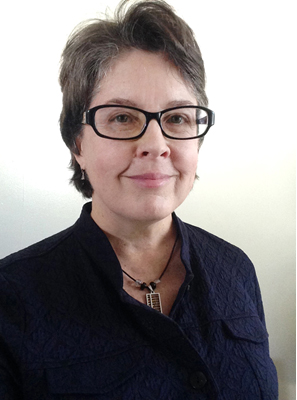Quinn Montana's research is all about food so what better place to visit than Rome, Italy?
"Actually, my work involves a lot of number crunching and data," Quinn laughs, "although I love authentic Italian food and Rome did not disappoint."
The conference was the seventh annual International Conference on Agricultural Statistics (ICAS VII,) established by the Food and Agriculture Organization of the United Nations and hosted at their international headquarters. Funding for this trip was provided through the Graduate School in the form of a student travel grant.
Montana's work is within the interdisciplinary Environmental Dynamics Program in the Graduate School and International Education, under the mentorship of professor Stephen Boss. Her research topic is the output of global agricultural production, including fish and aquaculture, meat and fodder, for the past 50 years.
"When we convert this data into calories, as I have done, we are able to give policy makers, producers and national food security advisers around the world an easily accessible snapshot of where our production stands relative to human caloric demand. Traditionally, agricultural production is measured in metric tonnes and yet we measure what a human being requires per day in calories."
"While the FAO has historically calculated the tonnes of food and divided that by per capita consumption per country and extracted calories from that, this somewhat different approach and the aggregation of five decades of data and division of it into crops, fodder, fish and aquaculture, and meats in a single graph reveal patterns that bring into question some of the assumptions policy makers have had about what is available to us," she says.
"My poster was very well received," she said, "and it was an honor to have been able to participate."
Montana's path to a doctoral program as a non-traditional older student has been a circuitous one. It began when she felt compelled to write a book to share what she saw as failings in our national food system in terms of making healthy choices easily accessible to everyone. That book took seven years to write because, she explains, "I was working full time and sometimes two jobs to support myself and then doing my writing at night. I did not have the support of an academic environment at the time, nor support from literary or journalism sources. It was just me, burning with the passion to awaken people."
That book, "Worship Your Food," led to her being chosen as a delegate by the national Slow Food USA organization, of which she'd been a long time member, to the biannual International Slow Food Conference in Turin, Italy in 2012.
"It was really only with the help of a broad community here in Fayetteville that I was able to go," she says. The conference, food and housing were paid for by the organization, but the round-trip flight and spending money all came from generous donations locally and around the country from friends and supporters who'd read the book.
"That conference experience made me realize that I wanted the credentials and the platform to share my concerns about food accessibility more widely," she said. "And so here I am, delighted to be at the University of Arkansas. As I say all the time to my much younger classmates, it's never too late to learn."
Topics
Contacts
Jo Ann Kvamme, assistant director
Environmental Dynamics
479-575-6603,
Amanda Cantu, director of communications
Graduate School and International Education
479-575-5809,
